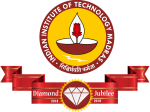
Can the sun act as a cooling agent? Don’t be ridiculous! But that’s exactly what we have with solar-powered cold storage systems!
The sun has always been considered a valuable source for clean, renewable, and environmentally friendly energy. In a tropical climate like India, we have a great advantage in harnessing a significant amount of energy from the sun. Therefore, a solar-powered refrigerating or cooling system is certainly a viable option.
In this study, authors Mr. Vijayakumar S., Prof. Mani A., and Dr. Advaith S., from the Refrigeration and Air-conditioning Laboratory, Department of Mechanical Engineering, Indian Institute of Technology (IIT) Madras, Chennai, India, have designed, developed, and investigated a solar cold storage system with a capacity of 3.5 kW.

The study examines the heat load and various operating parameters that influence the performance of a solar cold storage system, such as solar radiance and components like the collector, generator, absorber, and condenser. Only the most efficient and environmentally friendly components are utilized. The system operates on an absorption refrigeration system (ARS), which is more eco-friendly than conventional refrigeration systems and makes use of low-grade energy for heat supply.
Evacuated tube collectors (ETC) were employed, and the refrigeration system functions through a continuous vapor absorption process. The solar cold storage system and its components were designed, fabricated, erected, and tested at the Neyveli Lignite Corporation Limited (NLC) in Neyveli, India.
Several observations were made during the study. The collector field generated an average hot water temperature of 110 degrees Celsius during the June-July months of 2023, with an average solar radiation of 623 kW/m2. The system’s continuous operation, spanning a complete 24-hour cycle, was achieved by integrating the solar cold storage system with a sufficiently large thermal storage system and expanding the battery backup.
This paper addresses the rapidly changing energy and environmental landscapes, particularly in India, where ARS offers an innovative solution to the challenges of food wastage and spoilage. Solar-powered cold storage techniques, as suggested in this study, can significantly mitigate food losses. Not only are these systems more efficient and eco-friendly, but they also require minimal operational costs. Prof. Bidyut Baran Saha, Professor and Principal Investigator at the International Institute for Carbon-Neutral Energy Research (WPI-I2CNER), Kyushu University, Fukuoka, Japan, acknowledged the importance of the work done by the authors with the following comments: “The study provides a comprehensive analysis of the solar cold storage system, highlighting its innovative integration of solar energy with absorption refrigeration, which is both environmentally friendly and energy-efficient. The detailed examination of key operating parameters demonstrates a thorough and methodical approach to optimizing system performance. The work is interesting and has a significant practical impact.”
Article by Akshay Anantharaman
Click here for the original link to the paper










